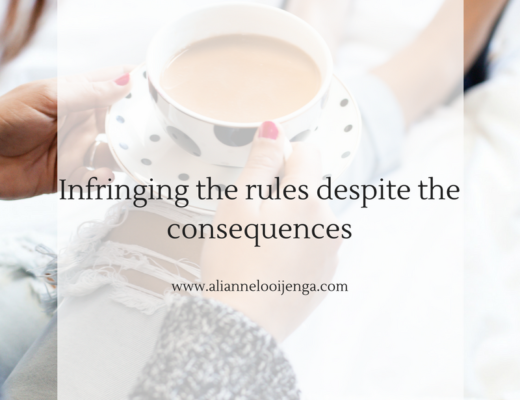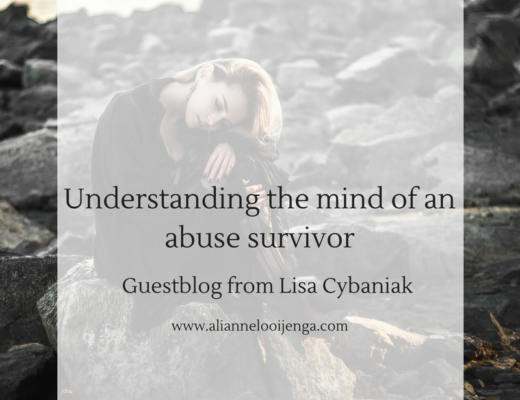(This blog was originally written by me for LifeSurfer in 2015/2016)
Recently I asked an survivor whether she had questions for my blog that would let me help you. The questions she asked were namely “Why” questions about the abuser:
- Why did he abuse me?
- Why does the abuser makes a victim out of himself?
- Why does he belittle others?
- Why do others not see how the abuser really is?
- Why did he see it as extremely annoying to think about his behavior?
I would like to go briefly into it.
An abuser makes himself a victim because from this position:
1.) he does not need to take responsibility for his actions,
2.) he can lay the blame on you,
3.) and because from the position of a victim he does not have to think about his actions (because it is your fault) and also, this way he can easily push away potential feelings of shame and does not need to seek help for his behavior.
4.) In addition, from this position he receives empathy and validation mostly from other women (“oh what a nasty ex you have”) and sometimes even female professionals, whereby of course often some of the facts are omitted from the story, or respectively added to it.
Why an abuser behaves the way he does, is difficult for me to indicate from sitting behind my desk. Of course there is a lot to say about it from the psychological point of view, but the possible answers are very diverse and as a matter of fact, the most of us will not be able to find out precisely why. It could be due to a personality disorder, but sometimes an alcohol addiction plays a role. An abuser who mistreats due to a borderline personality disorder does it because of different impulses/motives than someone with an alcohol problem.
What can help for example is to find out what kind of an abuser he is. For that, I use Dutton’s distinction, you can read more about it on the following website: http://www.ncbi.nlm.nih.gov/books/NBK64431/
In conversations with clients, I am not that much interested in their abusive partners though. I am more interested in the “why” of the victim. ‘The fear is beaten into you with the first hit” says a friend of mine, but another question is; what did you tell yourself that made you want to continue that relationship? When did you have enough?
In many relationships where emotional or physical abuse plays a role you see a cyclical pattern;
In the first phase there is tension building; the abuser is moody, attacks verbally about little things, belittles the victim, shouts and criticizes.
The victim responds by trying to calm the offender down, being quiet or on the contrary talking a lot, ensuring that no one irritates the abuser. That is why, for example, she will ensure that the children stay quiet. She is passive, withdraws and walks on eggshells.
In the second phase the physical abuse starts. The victim is kicked, beaten, pinched etc. The victims respond to this by protecting themselves, for example, by going away or calming the partner down. At this stage some children or neighbors call the police.
Thereafter the third phase follows, in which the abuser apologizes or asks for forgiveness. He declares his love and says he will never do it again. Cries. Says that he/she cannot live without the victim. Gives her an important feeling and position. Threatens with suicide if the victim leaves, appeals to her tendency to care for him. This behavior of the abuser keeps many women in the relationship and causes mutual dependence. The reaction of the victim is that she agrees to stay, tries to stop legal proceedings and becomes hopeful for their relationship in the future. Another group of abusers threatens during this period with a lot of conviction to kill the wife and/or the children, or to take the children away. In this case there is no period of remorse and empty promises, but the abuser will simply ignore what he has done to the victim. The woman knows these are no empty threats and remains to stay alive or to protect her children. After that, the first phase starts again.
The point is that many women become ‘addicted’ to their feeling of wanting to save him. Both the abuser and the victim convince themselves and each other that together they can conquer the world. The victim has the feeling that she has to keep standing behind her husband.
A process called “traumatic bonding” is activated. Traumatic bonding is the result of continuous cycles of abuse characterized by an interrupted alternation between a punishment (abuse) from the abuser towards the victim and bigger rewards (to keep you in the relationship). Powerful emotional bonds are created here. Negative emotions are pushed away while the positive ones remain. These bonds discolor both the past experiences as well as the hoop for a better future.
The difference between the man who commits abuse and the man in the third phase is so great that women want the most to forget that in reality this man has just one body, and want to ignore the science. Moreover, many abusers say that ‘it wasn’t at all that bad’ and that ‘she should not make such a fuss out of it.’ The victim adopts these sentences like a mantra.
The question, therefore, is not that much why he did what he has done, because the chances are very high that you will never get the answer.
Even more, the why-question about the abusive partner diverts from what it really should be about; how is it possible that a woman as wonderful as you has entered such a relationship and remained in it after he started treating you wrongly. What did you tell yourself about yourself, the other person and the relationship? Why have you stayed? Was it out of fear or were there other processes at hand? Why did you feel attracted to him?
You cannot change someone else, but a better life for you does start with you understanding of yourself. Do ask yourself, above all, about what you need to make yourself mentally and physically resilient and to live your life up to your wishes. Stop focusing on what you can’t change, it’s a waist of time.
Do you want to learn how to no longer let fear govern your life, how to make healthier choices or do you want to become more self-confident? Or do you simply want to move on with your life in the new direction?
-X- Alianne
P.S.
If you want to look from a scientific perspective towards partner abusers, I can wholeheartedly recommend the books of Donald Dutton. The abusive personality is one of my favorite books EVER but is not meant for people who don’t read on a regular basis or dislike reading about in-depth psychology.
P.S. 2 I think this short video of Matthew Hussey can help you out. It’s not as much about partner abusers but it is about toxic relationships. https://www.youtube.com/watch?v=d9JjyvHv9A4




No Comments